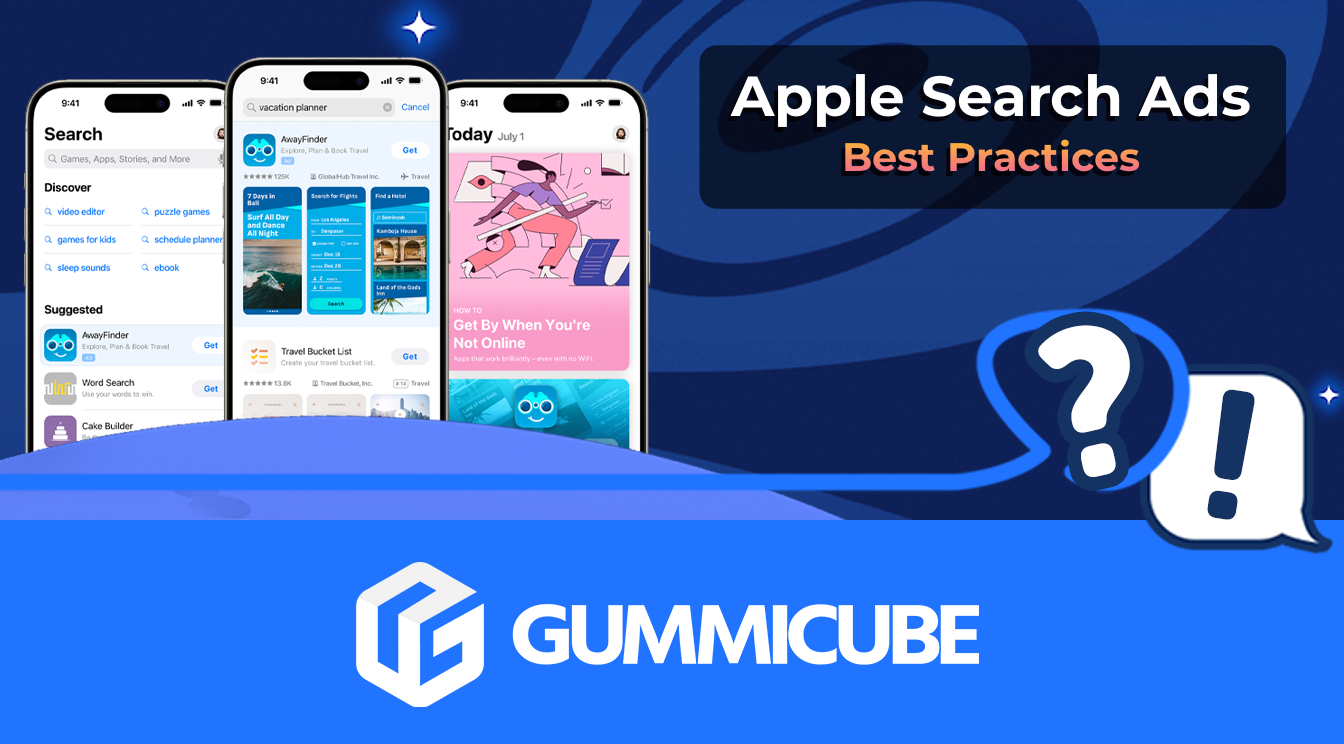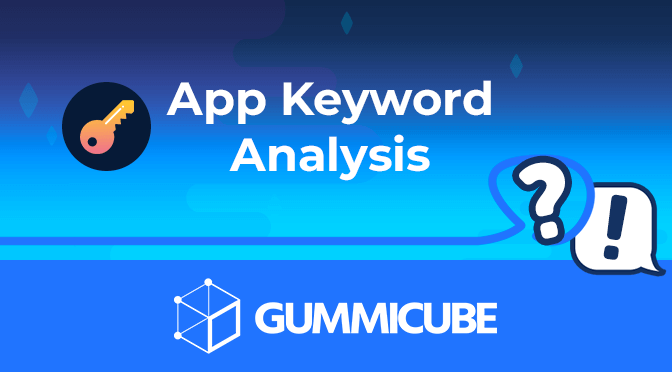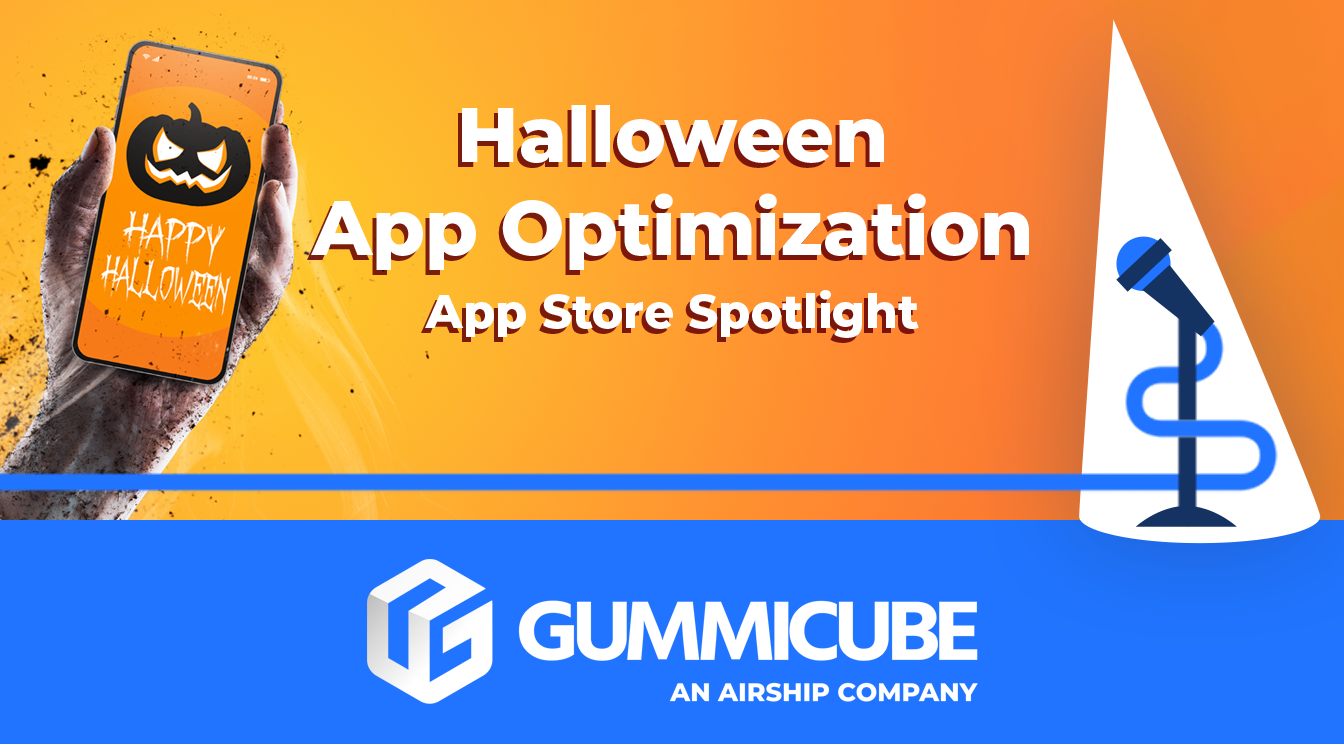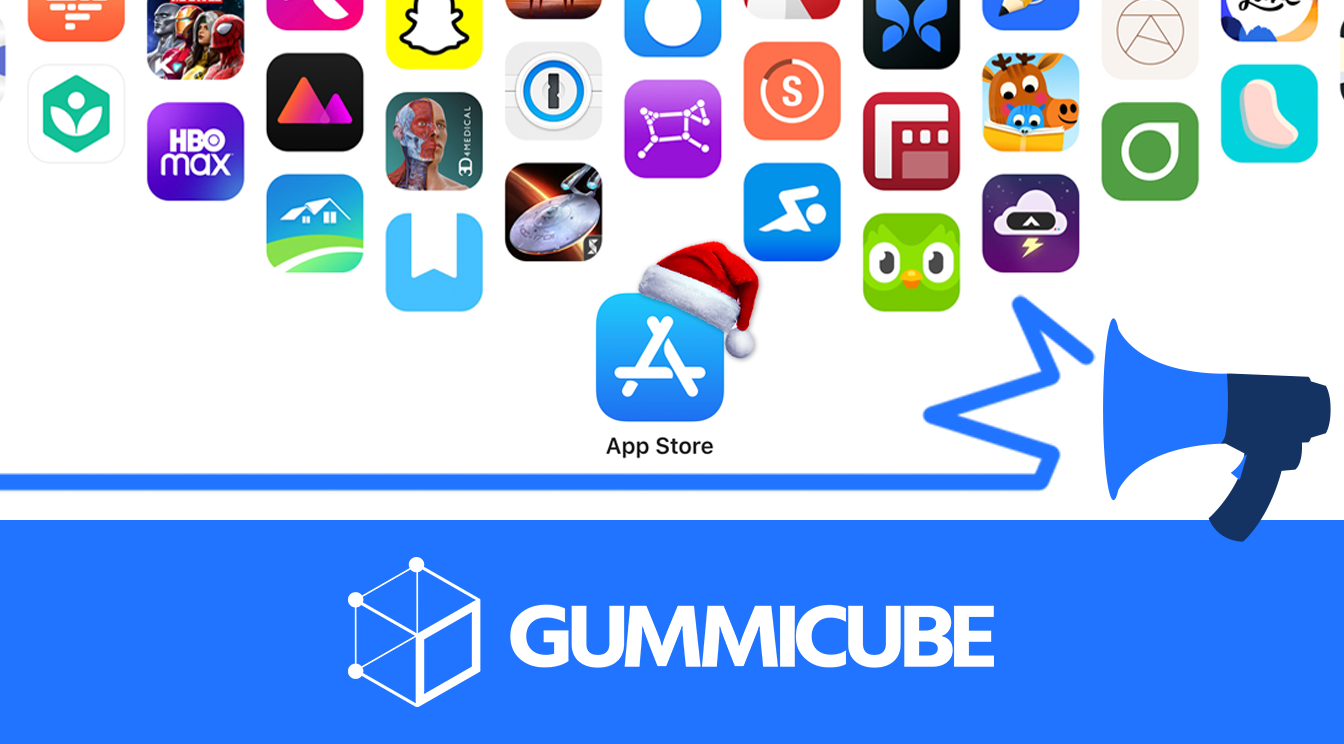
5 Best Practices for Apple Search Ads
Posted on July 3rd, 2024
Are you leveraging Apple Search Ads the right way? Take a look at these recommendations to optimize your paid campaigns and target the right users.

Is your App Store Optimization based on proper App Keyword Analysis? Knowing what keywords to target is a core pillar of ASO, but all too often developers target keywords based on no data, or even worse, faulty data.
If you want your ASO strategy to succeed, you need to find the right keywords for your app. How do you do that? With proper analysis, monitoring and updating.
You want your app to reach the greatest possible number of users, and the majority of users discover apps through search. This means you need to target terms users frequently search for.
App Store Optimization software can help you identify what keywords users are searching for. Knowing what terms are popular can help guide your decision making for the keywords you use in your keyword bank, description and screenshot copy.
A keyword must be relevant to the app, no matter how high its volume is. Users and the store algorithms should see how an app relates to the keywords it targets, otherwise it will not gain conversions or rankings.
For instance, a “work from home” app would not want to target “homework” keywords no matter how high the volume is. Users looking for homework apps are simply a very different audience.
If you’re unsure of how relevant a keyword is, check the App Store and Google Play Store to see what other apps appear in searches for that term. If you see apps with similar features or demographics in the search results, you’ll know the term is relevant.
The higher a keyword’s volume, the more users are searching for it. The more users are searching for a term you rank for, the greater your chance of discovery is.
This is a simple concept, if not an obvious one. Yet often times developers pick keywords based on their brand and features alone, without researching volume.
Low volume keywords can still provide a value if they are directly related to the app. This is where relevance is key. If your app can meet a specific need, then you should target that even if less-relevant keywords have more volume.
Keywords with lower search volume can help you target niche audiences, so a good blend of high and low volume terms is recommended.
In order to determine your keyword’s volume, you need to use data based on how users are searching in the stores. There are platforms that claim to provide keyword volume data while actually using web search data – these are not the same.
Mobile search volume and web search volume only align 20% of the time. Users search online differently than they search for apps, which results in significantly different keyword volume. As such, web search data is irrelevant for App Store Optimization.
Think of how you search when you want to find something on Google compared to how you search for apps on Google Play. For the former, you may search for “buy movie tickets” or search for the showtimes for a specific movie. For the latter, it’s more common to search for “movie app” or “tickets app.”

These differences create a significant divide between the search data. In order to optimize, you need data right from the source.
Keyword volume is not always the same over time. Trends can change, holidays can impact what users search for and unexpected events can cause sudden shifts in demand. App Store Optimization requires keeping up with these changes.
Developers should monitor the volume of their keywords and other potential targets. As the volume grows or diminishes, developers can adjust what they target based on demand.
For instance, shopping apps will want to monitor keywords tied to holidays. When Black Friday and Christmas begin approaching, they can adjust their keywords to target related terms. This will help them maintain a high ranking for holiday shopping apps.
It is also common for developers to find that their apps simply aren’t ranking well for certain keywords. In these cases, they can either focus on improving their relevance for those terms and target them with paid campaigns or find new keywords to replace them.
App Store Optimization takes research, testing and frequent updates. Don’t be afraid to try targeting different keywords if they can improve your visibility.
When analyzing keywords for your app, you should remember the following:
With these in mind, you’ll be able to determine the most effective keywords for your App Store Optimization strategy.
Want more information regarding App Store Optimization? Contact Gummicube and we’ll help get your strategy started.

Are you leveraging Apple Search Ads the right way? Take a look at these recommendations to optimize your paid campaigns and target the right users.

Ghostly happenings are among us... and in your app listing too? If you aren't leveraging the power of app seasonality to make relevant tweaks to your store listing you're leaving precious engagement and conversions on the table.

Developers on the iOS App Store should plan in advance of the upcoming Holiday Schedule to allow enough time for apps to get approved during the busy holidays.